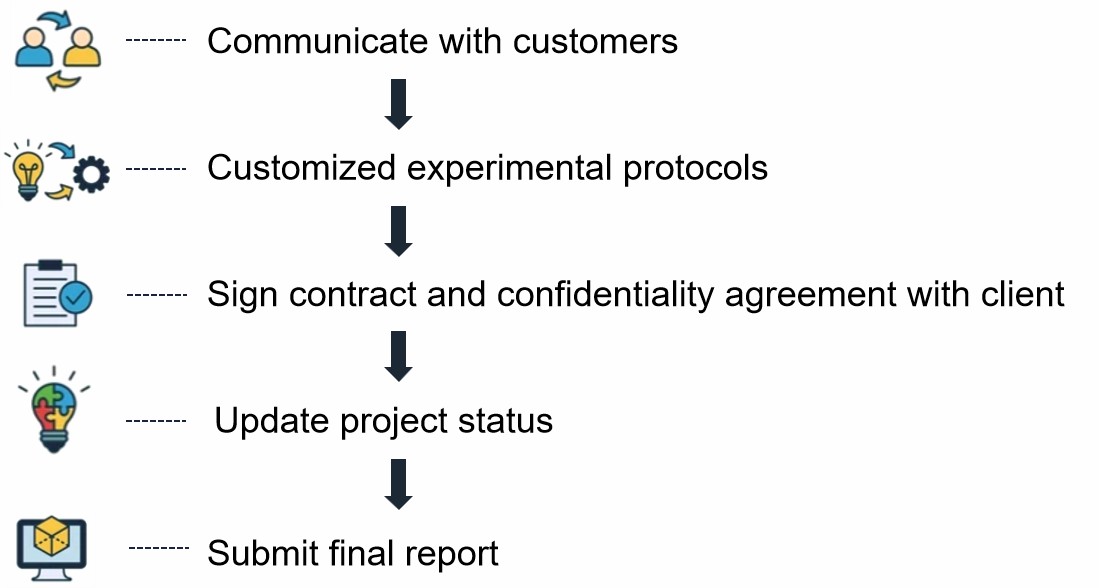Most insecticide protein gene identification research is used to identify Bacillus thuringiensis (Bt), which has a higher level of virulence than other insecticides. Bt insecticide is currently the most widely applied, longest developed, most productive, and most widely used biocide globally, and has been widely used to control pests. However, due to the long-term use of single Bt, the insecticidal spectrum is narrow, and the duration of effect is short, leading to pest resistance. Identifying insecticidal protein genes can be effectively used to screen strains for insecticide specificity and alleviate the problem of increasing pest resistance.
Lifeasible focuses on developing customized insecticidal proteins, aiming to provide effective solutions for pest control using advanced biotechnology. It also promotes the biopesticide industry into a benign development stage. Relying on an advanced biotechnology platform, we provide a comprehensive and effective solution for insecticide protein gene identification. This solution has good potential to control common insect pests in plants.

With the emergence of resistance problems in transgenic insect-resistant plants, identifying new insecticidal genes with activity will provide a reliable genetic source for genetically engineered insecticides. We have obtained several Bt strains targeting different pests and diseases using PCR-RELP identification system genetic analysis. Through genetic analysis and cloning of these highly effective Bt strains, we have used genetic engineering techniques to provide an effective solution for obtaining diverse Bt products with a broad spectrum of insecticides, long shelf-life, or multiple functions such as insecticide and disease resistance.
In addition, after initial screening and gene identification, we select special genotypes and active strains for further activity screening. In our plant pest control work, we select different Bt strains for different control targets, which are efficient at controlling and reducing pest resistance. So far, the insecticidal protein genes we identified have been effectively used to control pests such as beet moth, slash moth, and pine caterpillar.

Lifeasible insecticide development. Based on our years of service experience and advanced technology platform, we have laid a solid foundation for accelerating the industrialization of Bt-engineered bacteria and providing a new source of genes for insect-resistant transgenic plants. If you are interested in us, please feel free to contact us.
Lifeasible has established a one-stop service platform for plants. In addition to obtaining customized solutions for plant genetic engineering, customers can also conduct follow-up analysis and research on plants through our analysis platform. The analytical services we provide include but are not limited to the following:
Get Latest Lifeasible News and Updates Directly to Your Inbox
Adaptive Evolutionary Mechanism of Plants
February 28, 2025
Unraveling Cotton Development: Insights from Multi-Omics Studies
February 27, 2025